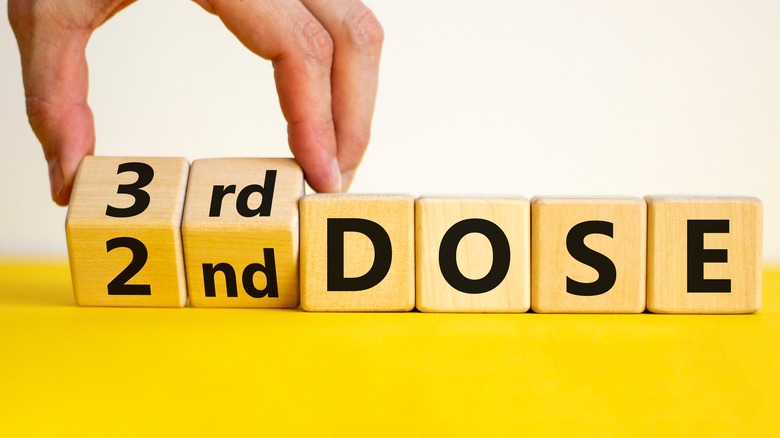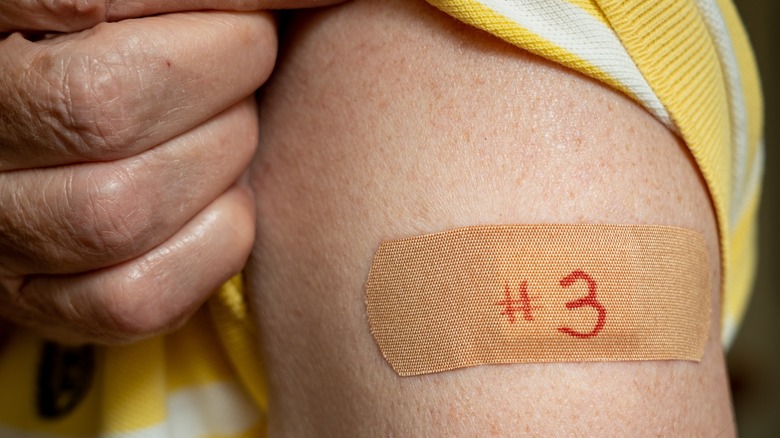Why Demand For COVID-19 Boosters Has Gone Up In The Past Month
As of November 30, the Centers for Disease Control and Prevention (CDC) COVID Data Tracker reports that nearly 60% of the U.S. population has been fully vaccinated against the COVID-19 virus, equating to over 197 million Americans across the country. Earlier in November, the CDC made booster shots available to all those 18 and older who had been fully vaccinated against the virus. Depending on the brand of vaccine received, individuals are eligible for a booster shot after having waited the appropriate amount of time after completing vaccination. For Moderna and Pfizer recipients, this means a waiting period of 6 months before being eligible.
With the emergence of the first Omicron variant case having recently been detected in the U.S., the CDC continues to stress the importance of protection through vaccination and advises all those over the age of 18 to receive their booster shot once eligible (via the CDC). In a recent White House briefing, President Joe Biden stated, "Do not wait. Go get your booster if it's time for you to do so" (via ABC News).
Has this recent push for vaccination by the current administration increased the public's demand for booster shots?
Opinions on booster shots vary by demographic
In the latest edition of its ongoing COVID-19 research project, the Kaiser Family Foundation (KFF) has seen growth in numbers within the last month of those having received or planning to receive their booster shot. As of November 2021, 23% of fully vaccinated Americans reported having already received the shot, while 37% reported that they plan to "definitely get" it.
Data trends revealed differences in willingness when it comes to booster shots by age, as well as political party affiliation (via CNN). For example, it was found that 87% of Democrats ages 50 and older who are already fully vaccinated have either already received their booster shot or are planning to do so, compared to only 58% of Republicans in this same age group, leaving roughly 30% saying they are unlikely to do so altogether.
Compared to the 10% of fully vaccinated Americans who had already received their booster shot in October, the November findings of the KFF survey indicate a 13% increase in booster shot demand.


